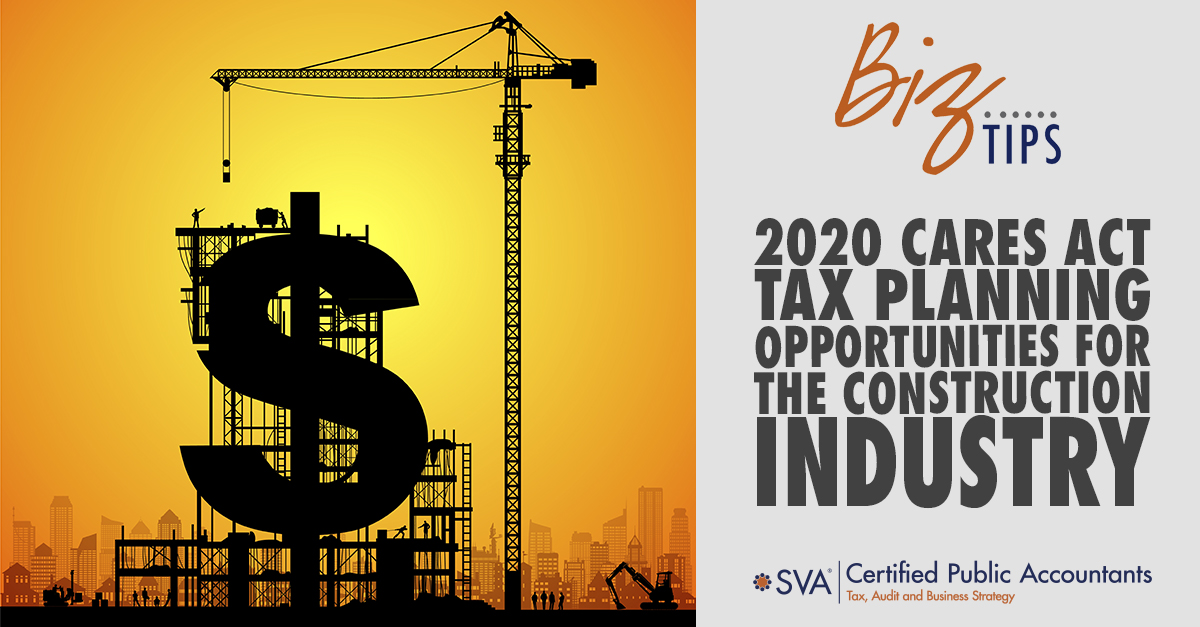Because many businesses face unparalleled economic uncertainty due to COVID-19, Congress passed the Coronavirus Aid, Relief and Economic Security Act (CARES Act). The CARES Act provided relief for businesses and individuals. The CARES act covered a number of opportunities. Let’s start with an overview of three of them.
Net Operating Losses
The passage of the Tax Cuts and Jobs Act (TCJA) in 2017 made significant changes to the treatment of net operating losses (NOL) for both corporations and individual taxpayers.
Under the provisions of the TCJA, NOLs generated in tax years beginning in 2018 and later years can no longer be carried back to prior years but must be carried forward indefinitely. Additionally, losses that are carried forward can only be used to offset up to 80 percent of taxable income in carryover years. NOLs related to farming businesses maintained the possibility of a two-year carryback.
The CARES Act reinstated and expanded the ability to carry back business losses. Under the CARES Act, losses arising in 2018, 2019, and 2020 tax years can be carried back to the previous five tax years. Furthermore, the taxable income limitation has been removed for losses arising in these years. Taxpayers can by election forego the loss carryback.
For losses arising in the 2018 and 2019 tax years, the irrevocable election to forego carryback to the previous five years is made by attaching an affirmative statement to a timely filed return for the first tax year ending after the enactment date of the law, March 27, 2020.
Taxpayers who are impacted by the rules for inclusion of deferred foreign income under Sec. 965(a), may also elect to forego the NOL carryback to any “section 965 year.” NOLs still retain an indefinite carry forward.
Excess Business Loss Limitations
The TCJA includes provisions that limit how individuals can use business losses to offset nonbusiness income.
Under provisions of the TCJA individual taxpayers are only allowed to deduct $250,000 of net business losses ($500,000 for joint filers) against other nonbusiness income. Excess losses are treated as net operating loss carryovers in subsequent tax years. The CARES Act repeals the limitation of excess business losses for tax years beginning before January 1, 2021. There is no provision allowing for elective application of the repeal. As such, taxpayers reporting excess losses for the 2018 or 2019 tax year must file amended returns to claim the full loss, even if the results are unfavorable.
The CARES Act also includes a number of technical corrections regarding the calculation of excess business losses. These changes will be applicable when the limitations are put back into effect for tax years beginning after December 31, 2020. These technical corrections include:
Qualified Improvement Property
A technical glitch in the 2017 Tax Cuts and Jobs Act prevented taxpayers from applying 100% bonus depreciation to Qualified Improvement Property.
Qualified Improvement Property (QIP) is defined as any improvement made to the interior portion of nonresidential real property after the date the building was first place in service. Any enlargement of the building, any elevator or escalator or improvement to the internal structural framework of the building does not qualify as QIP. The QIP was originally intended to be 15-year property and subject to bonus depreciation, but it was excluded due to a drafting error.
The CARES Act fixed this “retail glitch” by including QIP in the definition of 15-year property. The change allows taxpayers to claim 100% bonus depreciation on QIP retroactively to January 1, 2018.
Taxpayers can take advantage of this correction in the CARES Act by reviewing improvements to existing buildings in 2020 to determine if the property qualifies as QIP allowing them to claim 100% bonus depreciation on the improvements. Cost segregation tools can assist with maximizing the amount eligible for Qualified Improvement Property. Taxpayers should also consider if electing out of bonus depreciation for QIP would be more advantageous in cases where there are limitations to consider such as passive activities, at-risk or basis limitations. In these considerations, taxpayers should be aware that many states have de-coupled from the federal bonus depreciation deductions which can potentially create another level of complexity in tracking basis and future asset sales as well as disparity in state taxable income on an ongoing basis.
- Net Operating Loss deductions under Sec. 172 and the Qualified Business Income Deduction under Sec. 199A are not considered in determining the taxpayer's business deductions for the purposes of Sec 461(l).
Net capital gains attributable to a trade or business, limited to the taxpayer’s overall capital gain net income, are considered in the determination of excess business losses. However, net capital losses attributable to a trade or business are not included in the calculation.
These are just 3 of the areas covered by the CARES Act.
Additional items include:
- Employee Retention Credit
- Business Interest Expense
- Paycheck Protection Program (PPP)
- Families First Coronavirus Response Act (FFCRA)
- Section 139: Tax Free Reimbursements for COVID-19 Expenses
Download our eguide here for more information on all of these provisions. SVA is here to help guide you through this challenging time for your business. Contact us to learn more about our industry expertise.

© CICPAC 2020

